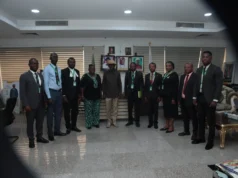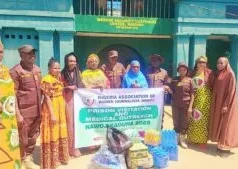Indian Home Minister Amit Shah on Monday expressed regret in parliament for the death of 13 civilians in the north-east on Dec. 4, during an anti-insurgency operation that went awry.
Shah’s statement came amid widespread criticism. Nagaland chief minister Neiphu Rio called it a black day in India’s history.
Giving details of the Saturday incident in Mon district, Shah said a special investigation team had been set up, it is to submit its report within a month.
Shah said the army had received information about the possible presence of militants, based on this information; a special force unit had set up an ambush in the Oting area of Mon.
When a vehicle passed through, it was signaled to stop. Instead, it sped away.
The army unit opened fire on the suspicion that there were militants in the vehicle, six of the eight passengers died and two were injured.
“Later it was found that it was a case of mistaken identity,’’ Shah said.
The passengers in the vehicle were coal mine workers who were returning to their village, according to Rio, who attended their funeral on Monday.
Following this incident, villagers surrounded and attacked the soldiers and set two of their vehicles ablaze.
A soldier was killed and several others injured.
“The soldiers had to fire in self-defence,’’ Shah said, and this led to the death of seven more civilians.’’
After the incident, a group of around 200 people vandalized a paramilitary unit camp in the town of Mon, Shah added.
The troopers fired to disperse the mob and one civilian died.
Shah said the situation in the region was tense, but was under control.
He said the army had expressed regret about the incident and would conduct its own investigation on how such an event could have happened.
All agencies have been told that they have to ensure that there should not be a repeat of this instance when they are trying to take action against suspected militants.
Several opposition party lawmakers walked out after Shah’s statement, saying such an incident should not have happened.
Rio also demanded a withdrawal of the Armed Forces Special Powers Act (AFSPA) from Nagaland.
The AFPSA gave sweeping powers of search and seizure to armed forces and protects its members from prosecution for acts including mistakenly killing a civilian during certain military operations.
The Mon area is a stronghold of the National Socialist Council of Nagaland (Khaplang), a Naga militant group, insurgents often cross into Myanmar after staging attacks in the region.
More than 15,000 people have been killed since the early 2000s in India’s north-east, which is home to several separatist, tribal and leftist groups.
“The question on everyone’s mind is that how come a group of unarmed civilians were not distinguished from hardcore militants,’’ Congress lawmaker Gaurav Gogoi said. (dpa/NAN)








